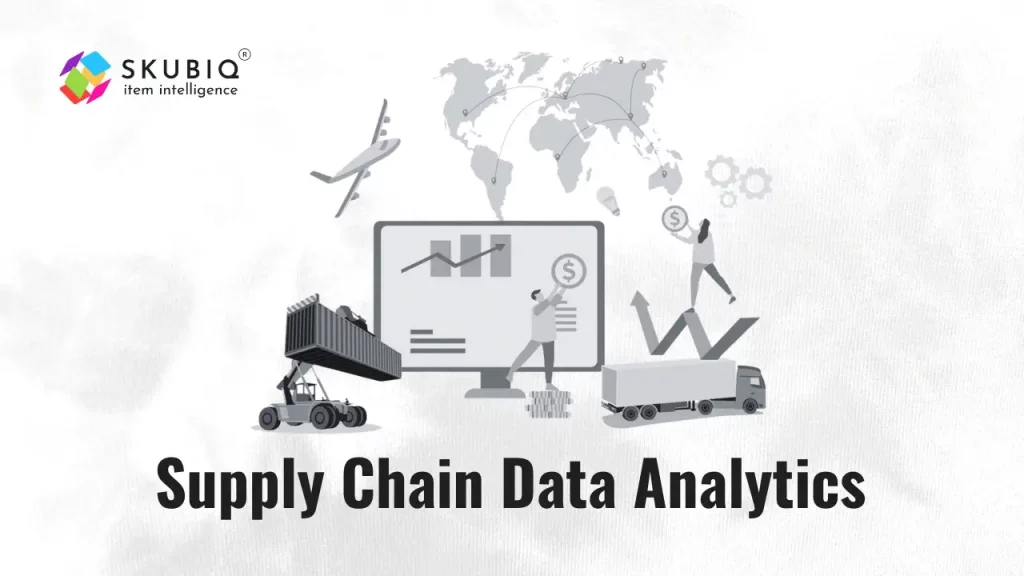In the ever-evolving landscape of business, supply chain management plays a pivotal role in ensuring the smooth flow of products and services from manufacturers to consumers. With the advent of technology, businesses are increasingly turning to supply chain data analytics to enhance efficiency, reduce costs, and make informed decisions. This article delves into the significance of predictive supply chain data analytics and its role in fostering sustainable business practices.
Understanding Supply Chain Data Analytics
Supply chain data analytics involves the use of advanced analytics techniques to gather, process, and analyze data related to the entire supply chain. This includes information on inventory levels, production schedules, transportation, and distribution. By leveraging the power of data, businesses can gain valuable insights that enable them to optimize operations, minimize risks, and respond swiftly to market changes.
The Evolution of Supply Chain Management
Traditional logistics and supply chain management focused on manual processes and reactive decision-making. However, as global markets became more complex and interconnected, the need for a proactive and data-driven approach became evident. This led to the integration of analytics into supply chain management practices, giving rise to the field of supply chain data analytics.
The Importance of Predictive Analytics
Predictive analytics is a subset of data analytics that utilizes historical data, statistical algorithms, and machine learning techniques to identify the likelihood of future outcomes. When applied to the supply chain, predictive analytics empowers businesses to forecast demand, optimize inventory levels, and enhance overall operational efficiency.
Supply Chain Data Analytics in Action
1. 1. Demand Forecasting
Predictive analytics enables businesses to forecast demand accurately by analyzing historical sales data, market trends, and other relevant factors. This allows for better inventory planning, reducing the risk of overstocking or stockouts. By optimizing inventory levels, businesses can enhance their resource utilization and minimize waste.
2. Optimized Route Planning
In the realm of logistics, efficient transportation is critical for both cost savings and environmental sustainability. Predictive analytics helps in optimizing route planning by considering factors such as traffic patterns, weather conditions, and fuel efficiency. This not only reduces transportation costs but also minimizes the carbon footprint associated with logistics operations.
3. Supplier Performance Analysis
Another significant aspect of supply chain management is the evaluation of supplier performance. Predictive analytics can analyze historical data related to supplier deliveries, quality, and reliability. This information aids businesses in identifying high-performing suppliers and fostering strong, sustainable partnerships.
Sustainability and Predictive Supply Chain Data Analytics
Sustainability has become a central theme in contemporary business practices. From environmental concerns to social responsibility, businesses are recognizing the need to integrate sustainable practices into their operations. Predictive supply chain data analytics aligns seamlessly with sustainability goals, contributing to both economic and environmental aspects of business.
Environmental Impact
One of the key benefits of predictive analytics in supply chain management is the reduction of environmental impact. By optimizing transportation routes and inventory levels, businesses can minimize energy consumption and greenhouse gas emissions. This not only aligns with environmental sustainability goals but also often leads to cost savings through more efficient resource utilization.
Waste Reduction
Predictive analytics helps in minimizing waste by ensuring that inventory levels are aligned with actual demand. This proactive approach prevents overproduction and excess inventory, reducing the amount of waste generated by obsolete or unsold products. Waste reduction is not only economically beneficial but also contributes to the broader goal of sustainable business practices.
Ethical Sourcing
Sustainable business practices extend beyond environmental considerations to encompass ethical sourcing. Predictive analytics can be applied to assess supplier practices and ensure compliance with ethical standards. This, in turn, allows businesses to make informed decisions about their supply chain partners, promoting social responsibility and ethical business conduct.
Challenges and Considerations
While the adoption of predictive supply chain data analytics offers substantial benefits, it is essential to acknowledge and address potential challenges.
Data Security and Privacy
As businesses accumulate and analyze vast amounts of sensitive data, ensuring data security and privacy becomes paramount. It is crucial for organizations to implement robust cybersecurity measures and comply with data protection regulations to safeguard both their operations and customer trust.
Integration Complexity
Implementing predictive analytics into existing supply chain management systems can be complex. Businesses may face challenges in integrating new technologies with legacy systems. A carefully planned and phased implementation strategy is essential to overcome these integration hurdles.
Skill Set Requirements
Effective use of predictive analytics requires a skilled workforce capable of interpreting data insights and making informed decisions. Businesses need to invest in training and development programs to enhance the data literacy of their employees.
The Future of Predictive Supply Chain Data Analytics
As technology continues to advance, the future of predictive supply chain data analytics holds even greater promise. Emerging technologies such as artificial intelligence (AI) and the Internet of Things (IoT) are poised to revolutionize the way businesses manage their supply chains.
Artificial Intelligence in Predictive Analytics
AI-powered predictive analytics can enhance decision-making by identifying patterns and trends that may go unnoticed by traditional analytics tools. Machine learning algorithms can continuously learn and adapt, providing increasingly accurate predictions and insights over time.
IoT for Real-time Visibility
The integration of IoT devices in the supply chain enables real-time tracking and monitoring of assets. From temperature-sensitive products to high-value goods, businesses can gain unprecedented visibility into the movement and condition of their inventory. This real-time data contributes to more informed decision-making and improved overall supply chain efficiency.
In conclusion, the integration of predictive supply chain data analytics is a game-changer for businesses seeking to align their operations with sustainable practices. By harnessing the power of data, businesses can optimize their supply chains, reduce environmental impact, and foster ethical business practices. As we look to the future, the continued evolution of technology holds the promise of even greater advancements in predictive analytics, further shaping the landscape of supply chain management.
Whether it’s demand forecasting, optimized route planning, or ethical sourcing, predictive supply chain data analytics emerges as a crucial tool in the pursuit of a sustainable and resilient business ecosystem. As businesses navigate the complexities of the modern market, the role of predictive analytics in shaping a greener, more efficient, and ethically responsible supply chain cannot be overstated.



